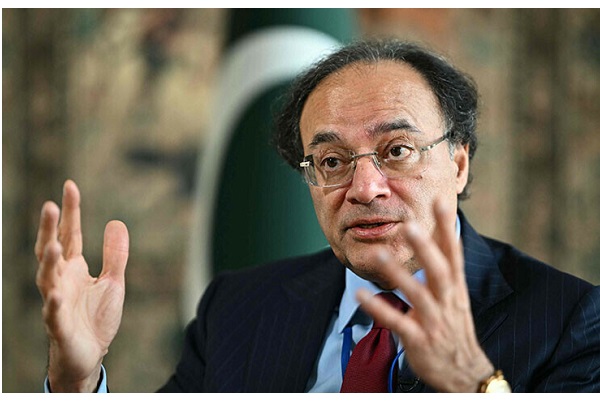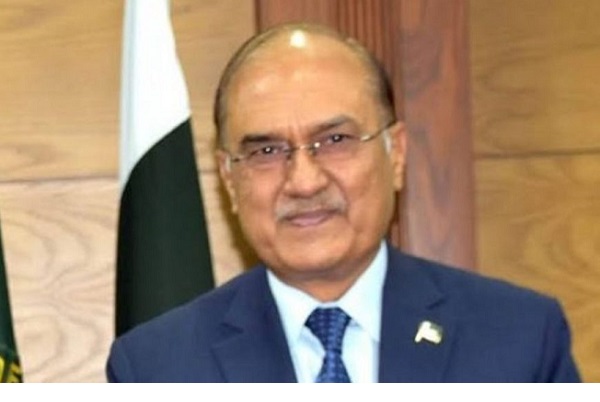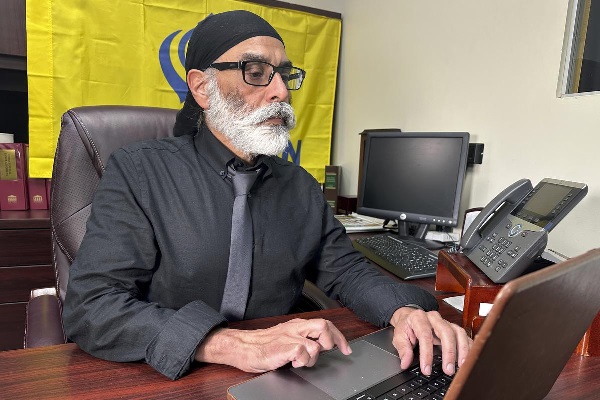ISLAMABAD: Former defence secretary Lt-Gen (r) Naeem Lodhi has proposed an end to incendiary discourse against institutions,
WASHINGTON: Finance Minister Muhammad Aurangzeb in a meeting with the IMF chief and some members of its board of governors, has reaffirmed Pakistan’s resolve to carry out “aggressive reforms” to stabilise its economy.
These discussions were part of a meeting of Middle East and North Africa (MENAP) ministers and governors with IMF Managing Director Kristalina Georgieva held on Tuesday.
Mr Aurangzeb “underscored aggressive reforms, including broadening the tax net, privatising loss-making SOEs, expanding social safety nets and facilitating the private sector,” his team said in a statement issued a day after the meeting.
The minister underscored the implications of geo-economic fragmentation on Pakistan and expressed gratitude to the IMF, multilateral development banks, and “time-tested sincere bilateral partners” for their unwavering support during these trying times.
He stressed the significance of reallocating a nation’s special drawing rights (SDRs) within the IMF to tackle economic hurdles effectively. Additionally, he highlighted the necessity of reassessing surcharge policies and giving precedence to the IMF’s Resilience and Sustainability Trust (RST) to address climate vulnerabilities.
The IMF’s Resilience and Sustainability Trust (RST) has been in operation for more than a year, with the initial 17 countries securing commitments of financial assistance. Pakistan, identified as a low emitter yet severely impacted by climate change, is also seeking aid from this fund.
Advocating for a more proactive and responsive Global Financial Safety Net to address heightened risks, the minister applauded the IMF’s renewed focus on Capacity Building through Regional Capacity Development Centres (RCDCs).
The minister advocated for a proactive global financial safety net to address heightened risks and appreciated the IMF’s renewed emphasis on capacity-building through regional capacity development centres. He also stressed the importance of collaborative efforts for sustainable economic development.
Pakistan, in pursuit of another long-term package its 24th thus far from the IMF, has formulated a comprehensive economic recovery plan. This plan encompasses three primary components: taxation, energy, and streamlining the privatisation of state-owned enterprises (SOEs), including PIA.
The IMF board is scheduled to convene on April 29 to deliberate on releasing the final tranche of its current programme with Pakistan. Subsequently, discussions between IMF staff and Islamabad regarding the new package are anticipated to commence.
During Tuesday’s meeting, the IMF acknowledged Pakistan’s progress in meeting its conditions, while Pakistani officials advocated for a new plan tailored more specifically to Pakistan’s needs.
You May Also Like
NEW YORK: Columbia University began suspending student demonstrators on Monday after they defied an ultimatum to disperse.
WASHINGTON: Senior officials of India's notorious Research and Analysis Wing (RAW) have reportedly been involved in approving the






